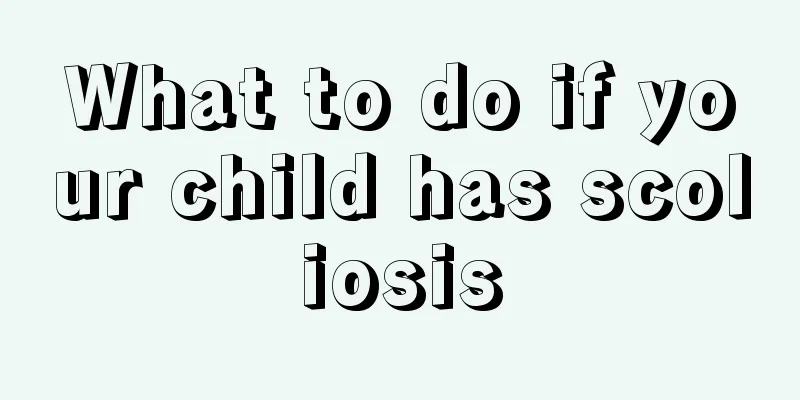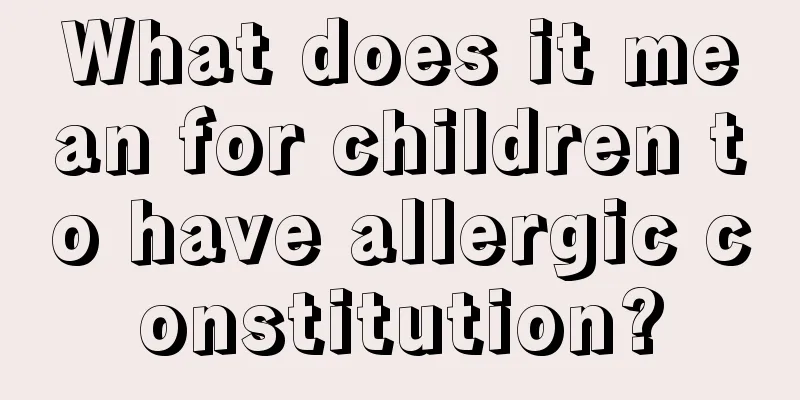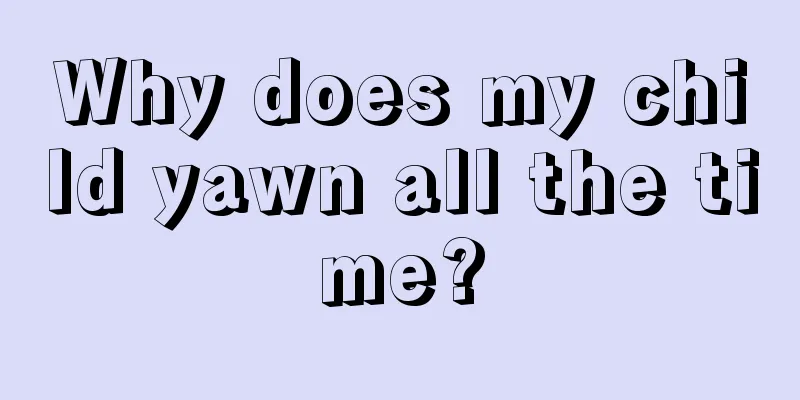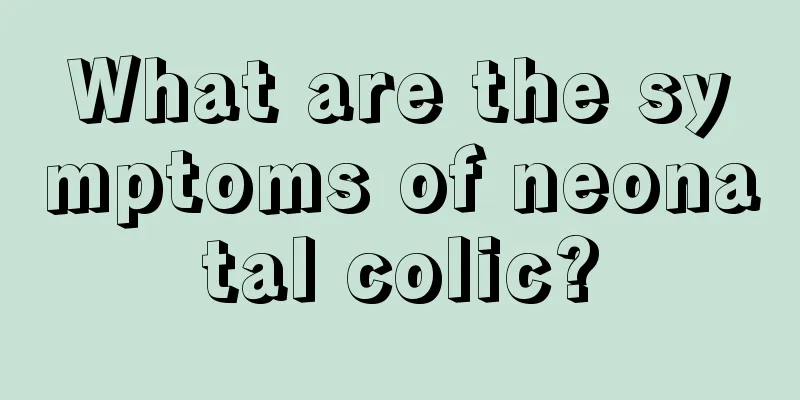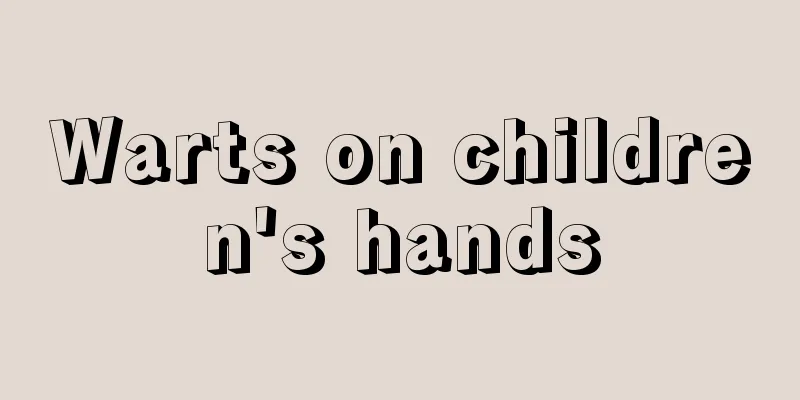What is the cause of premature ventricular beats in children?
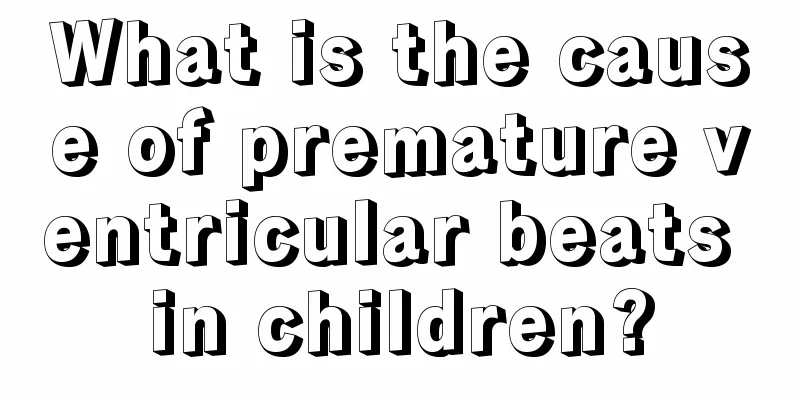
|
The medical concept of premature heart beats refers to premature heart beats caused by premature impulses from ectopic cardiac pacemakers. It is one of the most common arrhythmias. Premature heart beats are most common in children, because many children's bodies are not fully developed, so their hearts are more fragile than ordinary people. In addition, it is very necessary for mothers to understand the knowledge about premature heart beats so that they can receive timely treatment when your children encounter problems. Classification of premature heart beats: Depending on the location of the premature heart beats, premature heart beats are divided into three types: atrial premature beats, ventricular premature beats and nodal premature beats. Among them, ventricular premature beats are the most common, while atrial premature beats and nodal premature beats are relatively rare. Causes of premature heart beats: Many people ask what premature heart beats are and what the causes are. There are many reasons for premature heart beats. Emotional excitement, fatigue, indigestion, smoking, drinking, strong tea, etc. can all cause premature heart beats. Premature heart beats caused by this reason are accidental. Patients can gradually recover if they pay attention to overcoming the inducement. In addition, premature heart beats can also be caused by mechanical stimulation such as drugs, anesthesia, potassium deficiency, and heart surgery. Premature heart beats caused by organic diseases are seen in diseases such as coronary heart disease, mitral valve disease, myocarditis, and mitral valve prolapse. The mechanism of premature heart beats: This explains what premature heart beats are from the perspective of the heart itself. Premature heart beats are a common ectopic rhythm that can occur on the basis of sinus or ectopic rhythm. Abnormal cardiac automaticity can lead to the formation of abnormal impulses, including the decrease in the threshold potential of ectopic pacemakers caused by sinus impulses under certain conditions; changes in the permeability of diseased cardiac cell membranes to different ions, etc. Premature heart beats may occur sporadically or frequently, and may occur irregularly or regularly after each or every several normal beats, forming bigeminy or coupled premature beats. Here the editor would like to remind everyone that premature beats may have no symptoms, or there may be palpitations or a feeling of heart stopping. But no matter which type of premature beats it is, it is best to go to the hospital for a diagnosis and follow the treatment plan recommended by the doctor. This will also help you recover as soon as possible. Of course, premature beats are not a very serious problem, so you don’t have to worry too much. After the treatment, you must pay attention to taking good care of your child to prevent recurrence. |
<<: What foods can children eat to cure constipation?
>>: What should I do if I have congenital enamel hypoplasia?
Recommend
The baby cries at the same time every afternoon
Many parents are annoyed by their children's ...
Why does a four-year-old child vomit frequently after eating?
It is not uncommon for children to feel nauseous ...
Baby picking nose and nose bleeding
The feeling of having a foreign body in the nose ...
Is it dangerous if the baby has a fever of 39 degrees?
Everyone must be familiar with the disease of fev...
What are the dangers of insufficient sleep for children?
For children, lack of sleep will seriously affect...
Why does the baby cry suddenly when sleeping?
Some babies cry loudly while sleeping. In many ca...
What can’t babies with anemia eat? These foods should be avoided
There are many foods in life that children can ea...
What to do if the baby's back of the head is bulging
For many newborns, the bones of the head are rela...
What is the cause of benign epilepsy in children?
Many people do not understand what benign epileps...
What should children eat when they have a cough and phlegm? The key is to treat the disease according to its symptoms
There are two types of diseases that cause childr...
How to correct a child's hunchback?
It has become a common thing for children aged se...
At what age is it normal for girls to develop
The development of girls has always been a concer...
What should I do if my baby is seriously zinc deficient?
Recently I found that my baby doesn't like to...
What should I do if my baby snores while sleeping?
Babies often have various problems in their early...
What to do if your child has low intelligence
Many children are prone to problems when they are...
